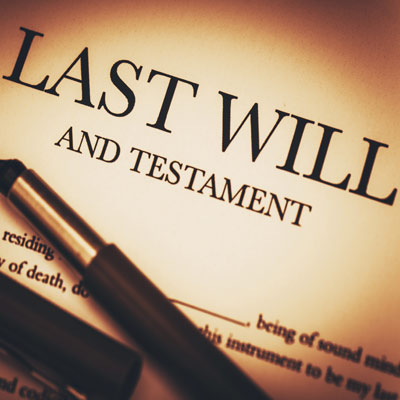Not receiving the inheritance you anticipated from a loved one can be devastating. Unfortunately, trying to overturn the wishes of the deceased is not an easy task. Determining whether to contest a loved one’s will can be a difficult decision for many individuals. Understanding what happens during a will dispute can help individuals make easier decisions.
Steps to Contesting a Will
Under state probate law, only certain individuals have standing to contest a will. Persons specifically named in the deceased’s will, spouses, and children may file a will dispute in probate court. The probate court will decide if there is a basis for overturning the will. Successful will disputes can result in the complete voiding of a will, a partial voiding, or the reinstatement of a previously signed will.
Grounds for Contesting a Will
An unfair or uneven distribution between beneficiaries is not a valid reason to overturn a properly executed will. The four most common dispute grounds for wills include improper execution, lack of mental capacity of the testator, fraud, and undue influence. To be valid, the testator must properly execute the will. This includes obtaining the proper signatures and witnesses. Under Pennsylvania law, a will must be witnessed and signed by at least two witnesses.
When the testator signs the will without having the proper mental capacity, there is a basis for a will dispute. The testator must understand the extent of their assets, be able to identify their heirs or beneficiaries, and understand the will’s effect. Individuals with more advanced stages of dementia or Alzheimer’s disease often lack the mental capacity to properly execute their wills. If a signature on a will is obtained by fraud, there is a basis for a will dispute. Fraud involves obtaining a signature on the will by leading the testator to believe they are signing some other type of document.
When an individual is forced to sign a will under duress or undue influence, the will may be unenforceable. Individuals who rely on full time caretakers can be especially vulnerable to undue influence as they lack control over many daily life decisions. They may be forced to sign a will or be denied necessities. Physical or mental abuse often allows manipulating persons to use duress to force a testator to sign a will against their own wishes.
Seeking Legal Assistance
Contesting a will can be a complicated process. Proving improper execution, fraud, lack of mental capacity, or undue influence will require a thorough understanding of the rules of evidence and standards of proof. By seeking the legal counsel of an experienced wills and estates lawyer, navigating the procedure can be much easier and take less time. Seeking qualified legal assistance is the best way to avoid costly will dispute mistakes.
Chester County Wills and Estates Lawyers at Eckell Sparks Help Clients with Contested Wills Throughout Pennsylvania
If you need assistance with contesting a will, the experienced Chester County wills and estates lawyers at Eckell, Sparks, Levy, Auerbach, Monte, Sloane, Matthews & Auslander, P.C. are ready to help. Our offices are conveniently located in Media and West Chester, Pennsylvania to represent individuals throughout Chester County, Delaware County, and Montgomery County. To schedule a free consultation today, call us at 610-565-3701 or contact us online.

